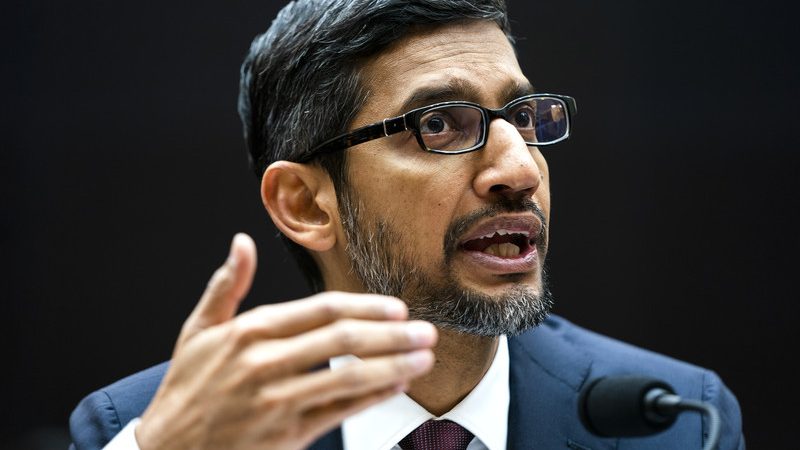
Google chief Sundar Pichai has called for ‘international alignment’ and ‘an agreement on core values’ in the future regulation of Artificial Intelligence. But positions of the EU and the US on the issue diverge, following the recent leak of European Commission papers detailing a crackdown on facial recognition technologies.
“The EU and the US are already starting to develop regulatory proposals. International alignment will be critical,” Pichai said on Monday (20 January), speaking to a packed audience at a Bruegel event in Brussels. “To get there, we need agreement on core values,” he said.
Last week, EURACTIV obtained a European Commission document setting out future plans that could see facial recognition technologies banned in public places for a period of between three to five years.
Meanwhile, the US administration has urged European lawmakers to avoid heavy regulation frameworks in the future rollout of Artificial Intelligence technologies, saying the bloc should “avoid heavy-handed innovation-killing models” and adopt an approach similar to the US.
Although Pichai acknowledged that regulation in the field of AI is “important”, his stance was softer than the approach the EU is likely to take in the future.
“It’s important to build on existing regulations,” Pichai said, adding that the EU should first start by considering measures in the field of higher-risk applications in certain sectors, including healthcare.
He said that rather than impose any blanket regulation, the EU should consider approaching the clampdown on certain technologies on a ‘case-by-case’ basis, in the remit of public-private partnerships.
On the European side, the Commission is set to announce more concrete plans on 19 February, in terms of a more-tightly defined strategy on AI.
On facial recognition, Pichai stopped short of supporting the recently leaked Commission plans to impose a temporary ban on the technology but highlighted the fact that Google’s cloud service does not offer general-purpose facial recognition application programming interfaces (APIs), before addressing certain “important technology and policy questions”.
However, the company is still actively developing facial recognition software for private use, including its Face ID and Google Photos programmes.
Moreover, in October 2019, it announced the establishment of its ‘Celebrity Recognition‘ software, a tool that uses Google’s image and video libraries to store data on an “international roster of widely-known actors and athletes.”
Pichai backs Breton’s industrial data plans
Meanwhile, Pichai backed the notion that the EU should be able to do more with the vast quantities of industrial data it generates – an idea recently floated by Internal Market Commissioner Thierry Breton.
In a recent interview with The Financial Times, Breton said he would make sure the EU would “not miss the new wave of industrial data.”
“The most important thing is to evaluate how we create data, who will create the huge data lake — some say data tsunami — and how we will be able to use this data,” the French Commissioner said.
The approach of potentially mirroring in the industrial sector the EU’s stance on protecting personal data was something that Pichai said Google could get behind.
“As Europe develops its industrial data policy, I think it makes sense to support that, just as we’ve done on the consumer side,” Pichai said.
Source: euractiv.com




